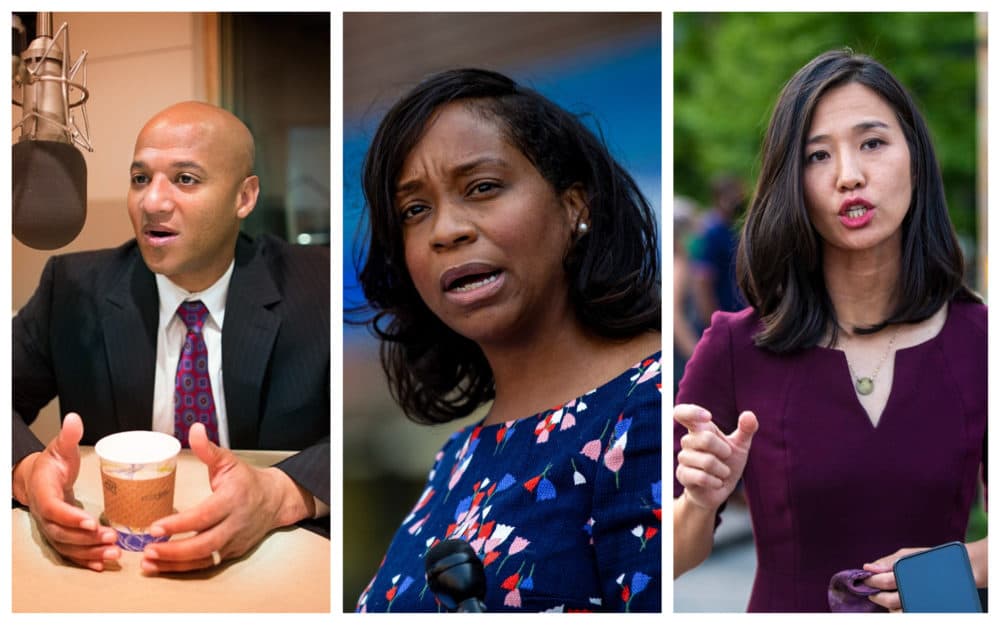Advertisement
Boston Mayoral Candidates Make The Case For Greater Investment In The Arts

Arts and culture aren’t typically a top line item in city budgets. But at an online forum Thursday evening, three Boston mayoral candidates made the case for the importance of the arts in city governance.
The forum was presented by Create the Vote Boston 2021, a coalition of arts workers and organizations lobbying for greater investment in the city’s cultural sector. John Barros and Boston city councilors Andrea Campbell and Michelle Wu attended the panel, which was moderated by WBUR reporter Cristela Guerra. Acting Mayor Kim Janey was scheduled to appear but dropped out. City Councilor Annissa Essaibi George declined due to a scheduling conflict.
The backdrop to the conversation was Boston’s relative stinginess when it comes to funding the arts — the city has historically invested far less in its cultural sector than other major metropolitan areas — and the devastating financial toll of the pandemic on artists and cultural organizations. In Greater Boston, arts organizations collectively lost over $423 million and individual artists nearly $13 million due to the pandemic so far.
All three candidates agreed the city needed to increase its funding of the arts, and in fact surpass the $20 million promoted by Create the Vote Boston. Barros proposed dipping into online gaming revenue and adding a surcharge to property taxes. He compared the latter proposal to Boston’s Community Preservation Act, but said he would advocate for it at the state level.
“I think such a program would generate $25 million to $35 million annually to invest in the arts,” Barros said. He also pledged to “explore” the possibility of a guaranteed basic income for the city’s artists.
Both Wu and Campbell emphasized the need for that money to be distributed equitably.
“I live in Mattapan, and it’s shocking to me how this community is left out in some of these placemaking conversations within the arts and culture community,” Campbell said.
The candidates offered a variety of solutions to the lack of affordable housing and artist workspace in the city. Campbell pointed to her work on the Community Preservation Act, which helps fund affordable housing, and touted her vacant lot initiative, which targets empty city-owned lots for improvement and development. Barros pushed for business-oriented solutions, like arts innovation districts. Wu argued for supporting “ownership and cooperative models,” like the artist-controlled Midway Artist Studios in Fort Point.
In response to a question about how the candidates planned to support young people interested in the arts, Campbell touted the city’s Youth Development Fund, a grant program for youth-serving nonprofits that was established during her tenure as city council president. Wu framed the issue in terms of equity and advocated for arts funding in the city’s public schools. “We are still treating arts education as something that is a luxury,” she said.
In their closing statements, the candidates sought to tie the arts to their platforms on housing, health and equity. “I will, in fact, as mayor, make the arts a priority in solving all of the other issues in the city,” Barros said. In this, the candidates were in agreement: the problems facing Bostonians were the same problems facing artists, and artists ought to be part of the solution.
